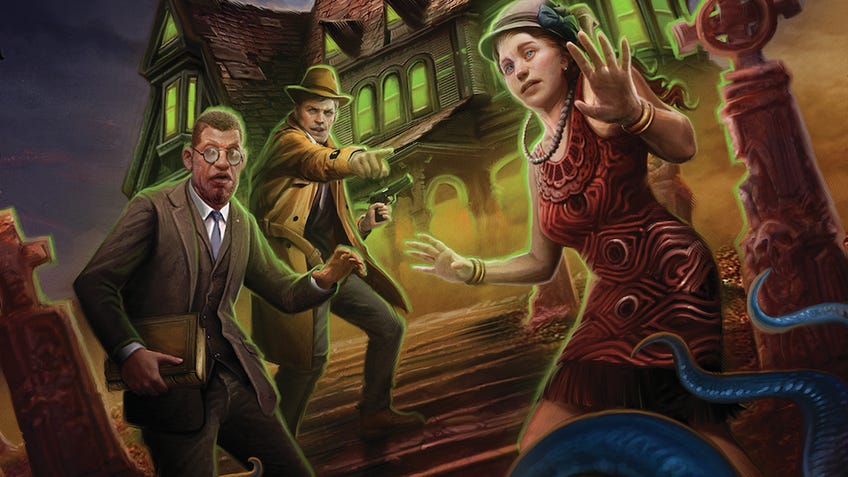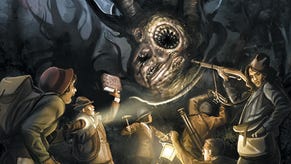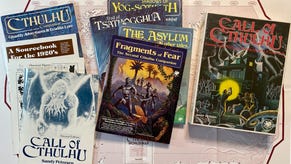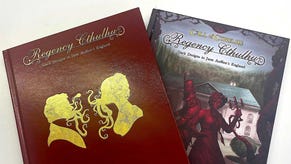Horror RPG Call of Cthulhu is bigger than D&D in Japan
More Japanese-language copies sold than all other languages combined.
Horror roleplaying game Call of Cthulhu has overtaken Dungeons & Dragons’ popularity in Japan, with its success driven by an explosion in interest among younger fans and a growing audience of female players over the last decade.
Call of Cthulhu was first translated into Japanese by publisher Hobby Japan, which localised the game’s third edition in 1986. Following a break in development during the 1990s due to a slump in the local market, its sixth edition was released by current publisher Kadokawa in 2004, and has seen a number of reprints since. By September 2019, all versions of the RPG had sold over 200,000 copies in Japan, according to Kadokawa.
The latest seventh edition of the game was released in December 2019, featuring a complete overhaul of the rulebook. Roleplaying game writer and editor Masayuki Sakamoto, who has worked on Call of Cthulhu since its original release in Japan, told Dicebreaker that the sixth and seventh editions have sold more than 300,000 copies combined, including 60,000 copies of the latest edition.
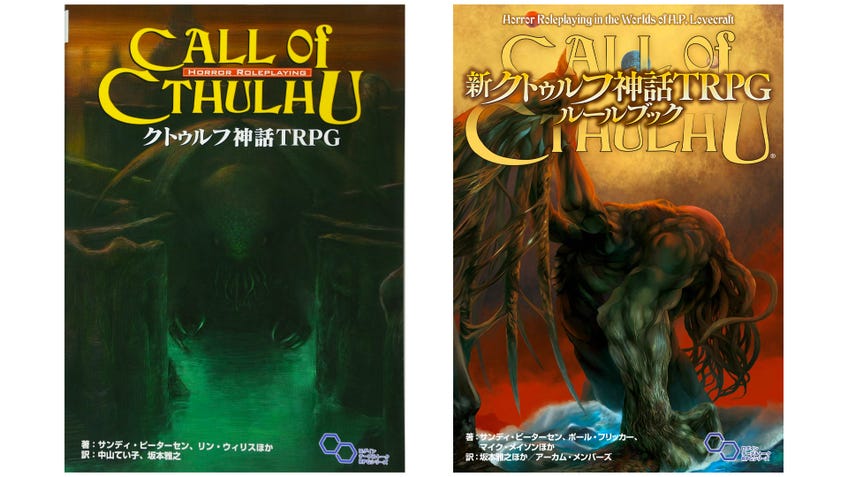
A representative for Call of Cthulhu studio Chaosium told Dicebreaker that the Japanese-language release of the RPG doesn’t just outsell any other language, it sells more copies than all of the game's other languages combined - English included. Chaosium added that the release of the seventh edition led to a “surge” of sales in 2020.
Call of Cthulhu sells more copies in Japanese than all of the game's other languages combined - English included.
According to the game's production studio Arclight, most Call of Cthulhu players in Japan are women aged between 17 and 35. By way of comparison, Wizards of the Coast revealed last year that most Dungeons & Dragons players are under 30, with 40% aged 24 or younger and around a fifth aged between 30 and 34. The majority of D&D players - more than three-fifths - identified as male, with 39% identifying as female. Players who identified as non-binary or “other” comprised less than 1% of the audience.
“It appears that the male player base [for Call of Cthulhu] reached its peak in the 40s and 20s [age ranges], where it could be said these are those who started during the boom around 1990 and those who started after CoC became known,” Sakamoto said. “For women, it is at a peak in their 20s, suggesting that many women have started playing TTRPGs in the past decade.”
Call of Cthulhu has previously been claimed to be more popular in Japan than Dungeons & Dragons, with tabletop localisation specialist Andy Kitkowski stating in an early 2018 YouTube video that Call of Cthulhu has been “the single top-selling RPG - period - for the last seven or eight years”.
“The scale is so grand that it is basically like D&D versus all the other non-D&D games in the US or other countries. It is Call of Cthulhu and then everything else. [...] That change happened the last eight years.”
“The single top non-[Japanese] RPG in Japan is Call of Cthulhu, by leagues,” Kitkowski reiterated on Twitter in June 2019. (Dicebreaker attempted to contact Kitkowski for further comment, but was unable to reach him in time for publication.) “It's the most common point of entry to the hobby. To put into perspective, the CoC shelves at [the] biggest RPG store in Japan are about the size of all the other RPGs together.”
“In Japan, [Call of Cthulhu] is immensely popular - so much so that whereas 'roleplaying game' is synonymous with Dungeons and Dragons in many other countries, in Japan roleplaying = Call of Cthulhu,” Chaosium tweeted in July 2019.
Some players consider Dungeons & Dragons as “CoC playing sword and magic fantasy".
Sakamoto said that Dungeons & Dragons initially “dominated” the Japanese market when its Basic Set was first translated in 1985, but “the transition to AD&D did not go well”, followed by a discontinuation of the Japanese edition following its move to current publisher Wizards of the Coast in 1997. A third edition released in 2002 “seemed to have sold just as well or slightly better than CoC 6th until 2012”, but while sales of subsequent D&D editions - including Fifth Edition - have remained largely consistent, Call of Cthulhu’s popularity has increased “significantly” in the decade since. Wizards of the Coast was unable to provide sales figures for Dungeons & Dragons in Japan when contacted by Dicebreaker.
“[Dungeons & Dragons] is still far behind CoC in terms of sales,” Sakamoto said. “Still, D&D is one of the most popular TTRPGs in Japan, with CoC being the exception.”
Call of Cthulhu’s influence on tabletop roleplaying in Japan as a whole has even led to some players to consider Dungeons & Dragons as “CoC playing sword and magic fantasy”, Sakamoto added.
Call of Cthulhu’s success is in part thanks to video replays that have introduced a new generation of players to the classic RPG. In comparison to live actual plays that feature players roleplaying together in person, such as immensely successful US D&D series Critical Role, replays typically consist of written logs or audio readthroughs of session transcripts. Call of Cthulhu replays often introduce an additional element of comedy to the game’s cosmic horror, Kitkowski added, which has boosted the game’s popularity with younger fans.
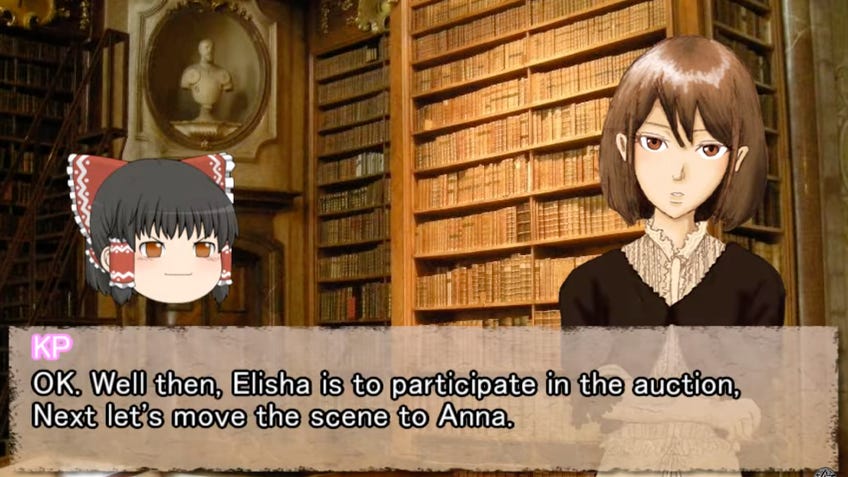
Kitkowski said that Call of Cthulhu was a “steady seller” until around 2008, when the RPG experienced a “boom” as the result of fan-made replays created using a combination of ‘hacked’ dating simulator engines and synthesised speech software known as vocaloids. Sakamoto added that light novel series Haiyore Nyaruko-san, in which some of the Old Ones depicted in Call of Cthulhu befriend a Japanese high schooler, had also contributed to interest in the wider Lovecraftian mythos.
Horror fits well with web content. It is fun to watch the player get scared and get surprised.
“The sixth edition [of Call of Cthulhu] sold only about 10,000 copies until around 2010,” Sakamoto said. “However, in 2012, the Cthulhu Mythos' name became popular among young people through the anime Haiyore Nyaruko-san (Nyaruko: Crawling with Love), and many replay videos were uploaded to [video-sharing website] Niconico around the same time, attracting many people's attention.
“Horror fits well with web content. It is fun to watch the player get scared and get surprised. The same goes for console [video] games, where horror games are very popular.”
Other factors that have aided the tabletop RPG’s popularity include its ability to be set in the modern day - as well as span genres from horror and pulp action to romance and “tragic love” - learning made easier by its “relatively few rules” and for players to appreciate the setting without in-depth knowledge of the Cthulhu Mythos, Sakamoto said.
“CoC acts as a platform for creating and experiencing such various stories,” Sakamoto said. “As with comics, the Japanese demand more detail in their stories. CoC is also suitable for incorporating the character's personalities, emotional movements, and the background of the incident into the scenario.”
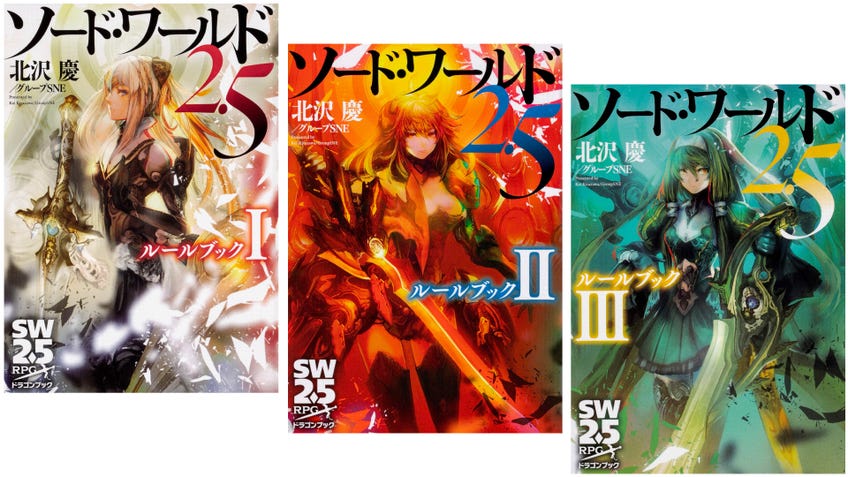
While Call of Cthulhu is the most popular RPG from outside of Japan, the best-selling tabletop RPG developed locally is Sword World, a fantasy game first released in 1989 that has sold hundreds of thousands of copies across multiple editions. Other popular roleplaying games created in Japan include 2019 release Shinobigami, a ‘Modern Ninja Battle’ RPG designed for one-shot sessions; “multi-genre horror” RPG inSANe that bears some similarities to Call of Cthulhu; and the superhero-themed Double Cross.
“In the last ten years, many people have discovered the existence of TTRPG and its fun,” Sakamoto said. “We can assume that these people will expand the range of TTRPGs and inspire more people to take up the hobby. Moreover, as a new generation of players grows up, there will be people who will create TTRPGs from a new perspective (we are already seeing the beginnings of this).”
Thanks to Akira Ueda from Hobby Japan and Keiji Kariya from Arclight for their assistance with this article.
Edit: This article has been updated to clarify that Japanese Call of Cthulhu publisher Kadokawa is the business partner of the game's production studio Arclight, rather than its parent firm.
